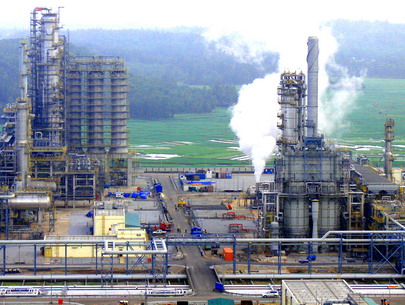This year is the time for Vietnam to sign the 2008 Convention on Cluster Munitions to facilitate the clean-up of unexploded ordnance (UXO) from the Vietnam War, according to a global peace organization.

Last week Vietnam was the third in a series of countries the Cluster Munition Coalition (CMC) is highlighting as part of a global campaign to promote signature and ratification of the Convention on Cluster Munitions. CMC is an international coalition of around 350 NGOs working in some 90 countries to encourage action against cluster bombs.
“With the entry into force of the convention on August 1 and the First Meeting of States Parties taking place in neighboring Laos on November 8-12 , there will never be a better time for Vietnam to join the convention,” said Thomas Nash, CMC Coordinator.
“The level and intensity of cooperation and assistance amongst states parties to the convention will be highest in the early stages of the life of the convention. By getting in early, Vietnam will have the greatest chance of securing assistance from other states,” Nash told Thanh Nien Weekly.
The Convention on Cluster Munitions, signed in Oslo in December 2008, bans the use, production, stockpiling and transfer of cluster munitions.
Official figures show that the US dropped 413,130 tons of sub-munitions on Vietnam between 1965 and 1973. Unexploded cluster sub-munitions still contaminate most of Vietnam’s provinces and continue to claim civilian victims.
The leftover bombs and mines used by the Americans in the Vietnam War have left fallow 4,359 square kilometers of once-fertile soil, or 5.43 percent of the country’s total arable land, the Ministry of Defense said in 2003.
An August 2006 report by Clear Path International, an organization working to assist civilian victims of war, estimated that some 800,000 tons of unexploded ordnance and mines were still present in nearly seven million hectares of land, or about 20 percent of Vietnam.
The Technology Center for Bomb and Mine Disposal (BOMICEN) at the Ministry of Defense estimated in 2003 that UXO and landmines killed 1,110 people and injured 1,882 every year “on average.”
One-sided
Nguyen Van Huynh, a former diplomat and now Vice President of the Vietnam Foundation for Peace and Development, told Thanh Nien Weekly that Vietnam is being cautious about joining in because of some tough tasks laid down by the convention.
The convention requires countries to clear affected areas within 10 years and destroy stockpiles of the weapon within eight.
“That would be really tough for Vietnam to address the UXO legacy alone with such a pressing deadline,” Huynh said.
“The burden should not be placed on Vietnam given that the UXO problem was created by other countries.”
The US Embassy’s Chargé d’Affaires Harry Kamian told Thanh Nien Weekly that eliminating residual explosives from past conflicts is an important issue for the people of Vietnam. Since 1989, the US has provided over US$43 million to help Vietnam address this challenge, he added.
Huynh said many activists and organizations have told him that if Vietnam signs the convention, the US and other countries will be much more likely to step forward and increase their support for Vietnam.
But Nash of the Cluster Munition Coalition said he doubts the US will feel any obligation in this regard.
Since the treaty was opened for signature in December 2008, 106 countries have signed and 32 have ratified it. But the US has not.
“The US has not signed and is unlikely to do so in the near future, so it will not be bound by the obligations to provide assistance,” Nash said.
“It will always be difficult to change the way global superpowers like the US behave,” he said.
But Huynh acknowledged the humanitarian aspect of the convention and said he is convinced that Vietnam will sign it soon.
Nash was even more hopeful, saying the convention is the best way to influence US policy on cluster bombs and increasing assistance to affected countries.
“The more affected and donor countries join the convention, the more powerful the influence on the US will be, even if the Obama administration remains outside for now,” Nash said.
Nash noted that the world has seen this kind of pressure working well on landmines. Even though the US has not yet signed the 1997 mine ban treaty, it has not used or transferred antipersonnel mines since the global ban came into effect.
“Now Obama is reviewing US policy on the mine ban treaty and 68 senators have called on him to join the international community by acceding now. It may take some time, but the same pressure can work on cluster bombs.”
Reported by An Dien




